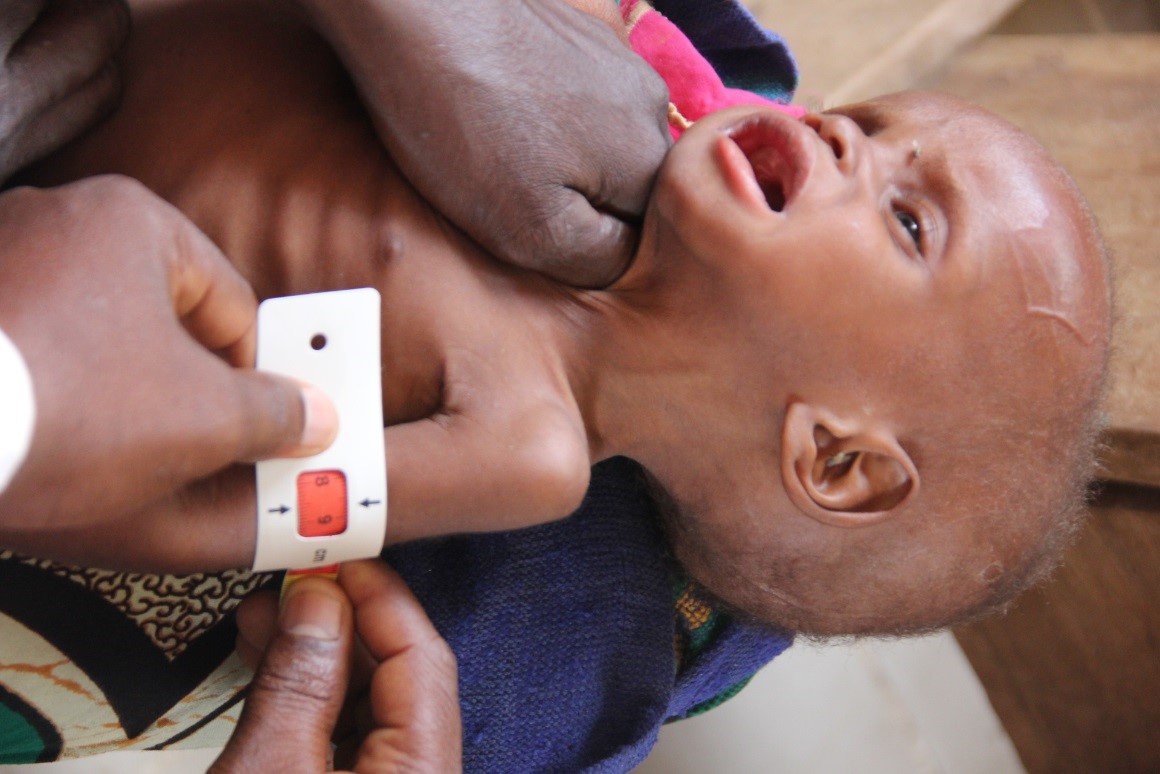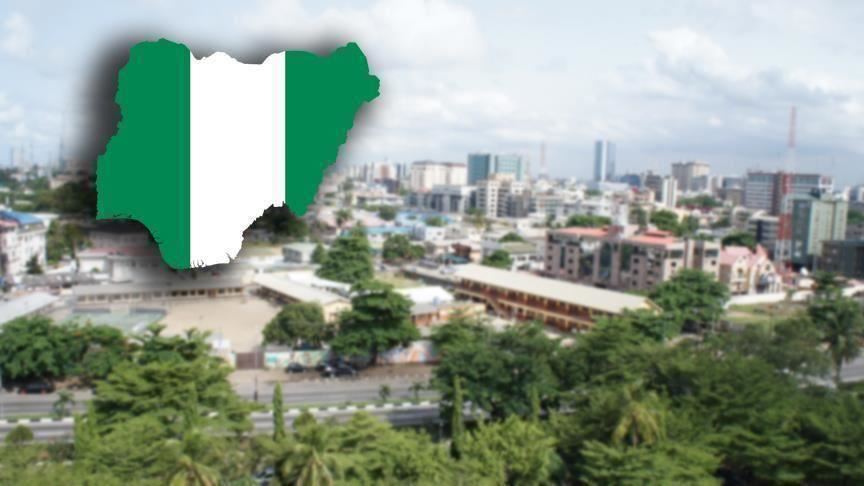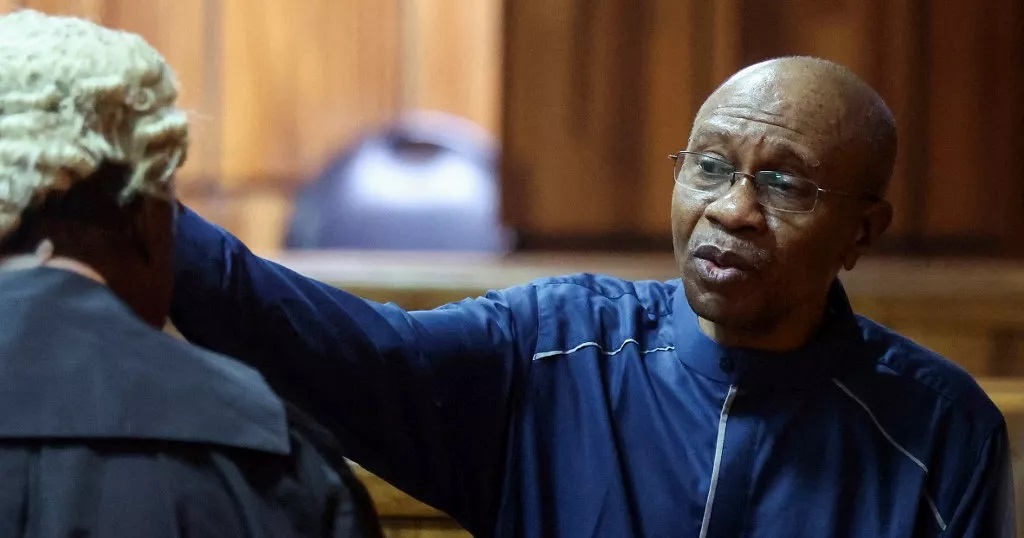General
Nigeria Suffers 75% Shortfall in Funds to Tackle Hunger

By Adedapo Adesanya
The United Nation’s top humanitarian official in Nigeria, Mr Matthias Schmale, has disclosed that out of the $1.3 billion in humanitarian funding needed in the BAY states (Borno, Adamawa, Yobe), only 25 per cent has been secured so far.
The UN official said that severe hunger affects 4.3 million people in Borno, Adamawa and Yobe States, adding that the number of children under five at risk of life-threatening severe acute malnutrition has doubled in one year to reach 700,000.
Describing the situation in the region, Mr Schmale said: “I have been to Borno and the other two states several times; I’ve seen mothers fighting for the lives of their malnourished children in nutrition stabilization centres.”
He added that the children he spoke to complained about being hungry for days.
“Those of us who are parents must imagine what it’s like when you cannot ensure your children have enough to eat,” emphasized the UN’s humanitarian coordinator in Nigeria.
The situation is primarily the result of more than a decade of insecurity linked to non-state armed groups, which prevents people from farming and earning income from the land, Mr Schmale said.
Another harmful factor is climate change. Last year saw the worst floods in ten years in Nigeria, which affected more than 4.4 million people across the country, not just the north-east.
The UN noted that soaring prices of food, fuel and fertilizers have exacerbated the crisis, and the response remains severely underfunded.
According to the UN World Food Programme (WFP) agency, the 13-year-old ongoing conflict in the region has affected the nutrition status of children on several fronts, adding that two million children in the Northeast region are projected to suffer from acute malnutrition.
“A total of 24.8 million people, or 1 out of 8 individuals, are experiencing acute hunger this year in Nigeria’s 26 states and the capital, Abuja”, it stressed.
The WFP warned that the more people in need of urgent food assistance who go unassisted, the greater the risk of starvation and death among the most vulnerable, and the more people would be forced to resort to coping mechanisms such as survival sex, selling possessions and child labour.
General
Navy Destroys Nine Illegal Refineries, Others in Ondo

By Adedapo Adesanya
The Nigerian Navy Forward Operating Base (FOB) in Igbokoda has dismantled nine illegal refining sites and destroyed 20,000 litres of crude oil and 15,000 litres of illegally refined diesel in the Obenla community, Ilaje Local Government Area of Ondo State.
The Commander of the Base, Navy Captain Aliyu Usman, disclosed this to journalists on Thursday, noting that the operation, carried out on January 6, 2025, was based on credible intelligence.
Troops of the Nigerian military have in recent times stepped up efforts to curb illegal oil activities, which has impacted to some degree the country’s production levels.
“In continuation with the efforts of the Nigerian Navy to stop all acts of crude oil theft and illegal refining within the Nigerian environment, the Forward Operating Base, Igbokoda, stormed into a farmhouse of illegal refining camp within Obenla community, where we discovered about nine illegal refining sites within the Obenla sea sites,” Usman said.
According to the Commander, the suspects fled the scene before the arrival of naval operatives.
“On arrival at the scene, the perpetrators have fled, obviously informed about our coming in fear of arrest.
“However, the entire area was crammed, and we discovered about 20,000 litres of stolen crude oil, which was yet to be cooked, and about 15,000 litres of illegally refined product suspected to be automatic gas oil (AGO), or diesel.
“This is yet another achievement for the Nigerian Navy in the efforts to clean up the environment and prevent all acts of illegalities by perpetrators against the Nigerian state.
“These efforts will continue until all illegalities are stopped, and this will be sustained as long as possible,” he stated.
He also seized the opportunity to sensitise the residents of the Obenla community to the dangers of harbouring such activities.
The Commander also stated that the Nigerian Navy will not relent in its efforts to stop all acts of illegality, advising criminals to find legitimate businesses to do.
General
Survey Lists Major Challenging Issues for Nigerian Businesses

By Adedapo Adesanya
The frequent power outages have been identified as one of the most pressing challenges for Nigerian businesses, forcing many firms to depend on alternative energy sources, the latest survey by the Nigerian Economic Summit Group (NESG) shows.
The NESG-Stanbic IBTC Business Confidence Monitor (BCM) is the flagship survey-based report of the NESG, supported by Stanbic IBTC.
The report showed that businesses faced significant growth challenges in the month under review, with inadequate power supply, insecurity, limited access to financing, and the complexity of multiple tax regulations topping the list.
Despite these constraints, businesses in Nigeria recorded a modest improvement in performance during the month, reflecting a seasonal uplift in the business environment.
As a result, the current Business Performance Index for December 2024 came in at +0.77, reflecting a rise in business activities and a moderate improvement compared to -2.74 in November 2024.
These constraints contributed to weak positive outcomes in the general business situation (+23.13) and production levels (+17.80).
Other challenges include the high exchange rate of the local currency against global trading currencies which escalated import costs, adversely affecting profitability and pricing strategies.
Businesses also lamented limited access to financing, which remained a persistent structural obstacle, further hindering business growth throughout the month.
A sub-sectoral analysis for December revealed broadly subdued outcomes, with a negative performance recorded in Manufacturing (-2.43), Services (-3.46), and Trade (-5.59).
Conversely, weakly positive results were observed in the Agriculture (+13.93) and Non-manufacturing (+5.80) sectors in the reviewed month.
It was established that structural challenges in Nigeria’s business environment intensified, restraining growth despite higher seasonal demand. Elevated inflation and exchange rates drove up operational costs and consumer prices.
The Cost of Doing Business Index rose sharply by +50.32, underscoring mounting pressures. Access to credit improved slightly (+8.25) driven by response to expanding business activities typical of this period.
Amid this, businesses identified the high cost of financing as a critical barrier to current performance and future growth expectations.
The most significant negative impacts were seen in reduced investment (-31.46) and declining price levels (-30.86), which severely hampered overall business activity and demand conditions.
General
Emefiele Loses Suit to Challenge Court’s Jurisdiction

By Adedapo Adesanya
An Ikeja Special Offences Court on Wednesday dismissed the application filed by the embattled ex-Governor of the Central Bank of Nigeria (CBN), Mr Godwin Emefiele, challenging the jurisdiction of the court to hear his case.
The Economic and Financial Crimes Commission (EFCC) had filed a 26-count charge against Mr Emefiele for alleged misuse of office, resulting in losses of $4.5 billion and N2.8 billion.
His co-defendant, Mr Henry Omoile, is standing trial on related offences, including unlawful acceptance of gifts from the former CBN chief.
Justice Rahman Oshodi, in his ruling today, held that the court had jurisdiction to try Mr Emefiele on the charge, citing relevant authorities.
He, therefore, dismissed Emefiele’s application and held that EFCC had established a territorial jurisdiction on counts eight to 26, with various facts in the proof of evidence attached to the case file.
The court, however, struck out counts one to four of the charge which bothered on abuse of office, saying the allocation of foreign exchange without bid, which was the subject of counts one to four was not punishable under the law.
“Allocation of foreign exchange without reason is not defined as an offence in any written law.
“The objection to counts one to four succeeds and is hereby struck out.
“The objection challenging the court’s territorial jurisdiction over count eight to 26 fails, and is hereby dismissed.
“The prosecution has established sufficient territorial nexus in this case,” the judge said.
The judge, thereafter, held that the case should proceed to trial and adjourned until February 24 for continuation of trial.
Mr Emefiele’s Counsel, Mr Olalekan Ojo (SAN), had on December 12 2024, argued that the court lacked jurisdiction to hear the case in Lagos.
Mr Ojo contended that the alleged offences, including abuse of office, fell outside the territorial reach of the court.
He said the charge violated Section 36(12) of the Constitution, and asserted that the actions Emefiele was accused of, were not legally recognised offences.
He stated that the Lagos State House of Assembly did not have legislative authority over matters on the Exclusive Legislative List.
Mr Ojo, therefore, said Section 73 of the Criminal Law of Lagos State, 2011, under which counts one to four were filed, could not apply extra-territorially to any alleged abuse of office by Emefiele.
The learned silk argued that a court’s territorial jurisdiction referred to the geographical area within which its authority could be exercised.
According to him, outside of that territorial jurisdiction, the court can not act.
He urged the court to strike out counts one to four of the 18 amended information filed on April 4, 2024, on the grounds that the offences occurred outside the court’s jurisdiction.
The EFCC Counsel, Mr Rotimi Oyedepo (SAN), in his counter affidavits, had argued that the court had the authority to hear the case.
Mr Oyedepo argued that the alleged offences were economic and financial in nature, therefore, within the jurisdiction of EFCC.
He also added that the evidence in support of the facts, proved Lagos as the appropriate venue for the trial.
Mr Oyedepo further submitted that the subject matter of the charge fell squarely within the court’s jurisdiction, as the offences were committed within the court’s territorial reach.
He argued that the evidence and witness testimonies pointed to Lagos as the proper location for the trial, adding that the objections raised by Mr Emefiele’s legal team were not substantiated by facts or evidence.
-

 Feature/OPED5 years ago
Feature/OPED5 years agoDavos was Different this year
-
Travel/Tourism8 years ago
Lagos Seals Western Lodge Hotel In Ikorodu
-

 Showbiz2 years ago
Showbiz2 years agoEstranged Lover Releases Videos of Empress Njamah Bathing
-

 Banking7 years ago
Banking7 years agoSort Codes of GTBank Branches in Nigeria
-

 Economy2 years ago
Economy2 years agoSubsidy Removal: CNG at N130 Per Litre Cheaper Than Petrol—IPMAN
-

 Banking2 years ago
Banking2 years agoFirst Bank Announces Planned Downtime
-

 Sports2 years ago
Sports2 years agoHighest Paid Nigerian Footballer – How Much Do Nigerian Footballers Earn
-

 Technology4 years ago
Technology4 years agoHow To Link Your MTN, Airtel, Glo, 9mobile Lines to NIN


















